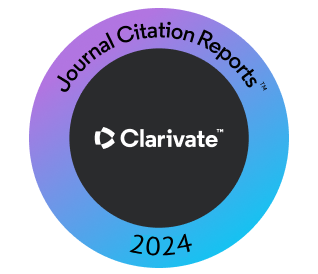Assessing E-Government Effectiveness
A Structural Equation Modeling Approach
Abstract
In this study, we address the pressing need to improve e-government services by conducting a comprehensive evaluation of document management practices within the Ministry of Higher Education in the Kurdistan Region of Iraq. Employing structural equation modeling and regression modeling techniques, we assess the effectiveness of key variables using the six factors (digitalization, utility, reliability, efficiency, user satisfaction, and accessibility) under the e-government assessment model. Our findings reveal that user satisfaction and ease of access are pivotal for the success of e-government services, with digitization and efficiency significantly impacting operational effectiveness. Furthermore, it also concerns that without improving the overall user satisfaction, the level of acceptance and use of e-government remains low. High user satisfaction can make a lot of difference in overall engagement besides improving service delivery among organizations. Through insights specific to the Kurdistan Region, we underscore the importance of balancing technical infrastructure with user experience. Our proposed six-factor model offers valuable guidance for policymakers and practitioners globally, aiming to enhance e-government services.
Downloads
References
Ahmed, A.M., Hassan, B., Saeed, S., and Saeed, A.A. 2016. Evaluating e-Government services in Kurdistan institution for strategic studies and scientific research using the EGOVSAT model. Journal of Applied Research, 1(2), pp.1-7. DOI: https://doi.org/10.24017/science.2016.1.2.2
AL-Kaabi, R. 2023. The impact of e-government services on customer satisfaction in the private sector: A case study of the Kingdom of Bahrain (SIJILAT) an online commercial registration. The Electronic Journal of Information Systems in Developing Countries, 89(6), p.e12275. DOI: https://doi.org/10.1002/isd2.12275
Al-Musawi, M.M. 2020. Transforming One-stop E-services in Iraq: Focusing on Perception of Blockchain Technology in Digital Identity System. In: IEEE Global Humanitarian Technology Conference (GHTC). IEEE, pp.1-4. DOI: https://doi.org/10.1109/GHTC46280.2020.9342959
Al-Taie, M.Z., and Kadry, S. 2013. E-government: Latest trend and future perspective the Iraq case. European Journal of Scientific Research, 99(2), pp.307‑323.
Bonett, D.G., and Wright, T.A. 2015. Cronbach’s alpha reliability: Interval estimation, hypothesis testing, and sample size planning. Journal of Organizational Behavior, 36(1), pp.3-15. DOI: https://doi.org/10.1002/job.1960
Brown, T.A. 2015. Confirmatory Factor Analysis for Applied Research. Guilford Publications, New York.
Cohen, J., Cohen, P., West, S.G., and Aiken, L.S. 2013. Applied Multiple Regression/Correlation Analysis for the Behavioral Sciences. Routledge, United Kingdom.Di Giulio, M., and Vecchi, G. 2023. Implementing digitalization in the public sector. Technologies, agency, and governance. Public Policy and Administration, 38(2), pp.133-158. DOI: https://doi.org/10.1177/09520767211023283
Doski, S. 2015. Implementation of E-government in Kurdistan Regional Government (KRG): Political, Social and Economic Constraints. In: European Conference on Digital Government. UK: Academic Conferences International Ltd, p.386.
Dunayev, I., Byelova, L., Kud, A., and Rodchenko, V. 2023. Implementing the “government as a platform” concept: The assessment method and an optimal human-centered structure to address technological challenges. Eastern-European Journal of Enterprise Technologies, 122(13), pp.6-16. DOI: https://doi.org/10.15587/1729-4061.2023.275613
Hassan, B.A., Ahmed, A.M., Saeed, S.A., and Saeed A.A., 2021. Evaluating E-government Services in Kurdistan Institution for Strategic Studies and Scientific Research Using the EGOVSAT Model. [arXiv preprint] arXiv:2105.02697.
Heeks, R. 2006. Understanding and Measuring eGovernment: International benchmarking Studies. In: UNDESA Workshop “E-participation and E-government: Understanding the Present and Creating the Future”. Budapest, Hungary, pp.27-28.
Lee, B.K., Lee, E.H., and Lee, T. 2023. The effect of E-Government website evaluation on user satisfaction and intention to use: The mediating role of warmth and competence judgment on government. Information Communication and Society, 26(9), pp.1868-1889. DOI: https://doi.org/10.1080/1369118X.2022.2041701
Maksimova, M., Solvak, M., and Krimmer, R. 2021. Data-driven Personalized E-Government Services: Literature Review and Case Study. In: International Conference on Electronic Participation. Springer International Publishing, Cham, pp.151‑165. DOI: https://doi.org/10.1007/978-3-030-82824-0_12
Moon, M.J. 2002. The evolution of E-government among municipalities: Rhetoric or reality? Public Administration Review, 62(4), pp.424-433.Muhammad, A.S., and Kaya, T. 2023. Factors affecting the citizen’s intention to adopt E-government in Nigeria. Journal of Information Communication and Ethics in Society, 21(3), pp.271-289. DOI: https://doi.org/10.1111/0033-3352.00196
Muttaqin, M.H., and Susanto, T.D. 2019. The Effect of Website Components on User Trust in Increasing the Interest to Use Public Administration Service on E-government Website. In: 2019 International Conference on Computer Science, Information Technology and Electrical Engineering (ICOMITEE). IEEE, pp.30‑36. DOI: https://doi.org/10.1109/ICOMITEE.2019.8921171
Nawafleh, S. 2021. E-government and citizen satisfaction in Jordan: EGOVSAT testing using SEM approach. International Journal of Productivity and Quality Management, 34(1), pp.20-32. DOI: https://doi.org/10.1504/IJPQM.2021.118085
Nawafleh, S., and Fares, A.M.S. 2024. UTAUT and determinant factors for adopting E-government in Jordan using a structural equation modelling approach. Electronic Government an International Journal, 20(1), pp.20-46. DOI: https://doi.org/10.1504/EG.2024.135323
Ølnes, S., and Jansen A. 2017. Blockchain Technology as a Support Infrastructure in E‑Government. In: Electronic Government: 16th IFIP WG 8.5 International Conference Proceedings, EGOV 2017. Springer International Publishing, St. Petersburg, Russia, pp.215-227. DOI: https://doi.org/10.1007/978-3-319-64677-0_18
Othman, A., Al Mutawaa, A., Al Tamimi, A., and Al Mansouri, M. 2023. Assessing the readiness of government and semi-Government institutions in Qatar for inclusive and sustainable ICT accessibility: Introducing the MARSAD Tool. Sustainability, 15(4), p.3853. DOI: https://doi.org/10.3390/su15043853
Sachan, A., Kumar, R., and Kumar, R. 2018. Examining the impact of E-government service process on user satisfaction. Journal of Global Operations and Strategic Sourcing, 11(3), pp.321-336. DOI: https://doi.org/10.1108/JGOSS-11-2017-0048
Yahia, H., and Miran, A. 2022. Evaluating the electronic government implementation in the Kurdistan region of Iraq from citizens’ perspective. Humanities Journal of University of Zakho, 10(2), pp.594-601. DOI: https://doi.org/10.26436/hjuoz.2022.10.2.928
Copyright (c) 2024 Aso Kh. Ameen, Dler H. Kadir, Dana A. Abdullah, Ismail Y. Maolood, Hewir A. Khidir

This work is licensed under a Creative Commons Attribution-NonCommercial-ShareAlike 4.0 International License.
Authors who choose to publish their work with Aro agree to the following terms:
-
Authors retain the copyright to their work and grant the journal the right of first publication. The work is simultaneously licensed under a Creative Commons Attribution License [CC BY-NC-SA 4.0]. This license allows others to share the work with an acknowledgement of the work's authorship and initial publication in this journal.
-
Authors have the freedom to enter into separate agreements for the non-exclusive distribution of the journal's published version of the work. This includes options such as posting it to an institutional repository or publishing it in a book, as long as proper acknowledgement is given to its initial publication in this journal.
-
Authors are encouraged to share and post their work online, including in institutional repositories or on their personal websites, both prior to and during the submission process. This practice can lead to productive exchanges and increase the visibility and citation of the published work.
By agreeing to these terms, authors acknowledge the importance of open access and the benefits it brings to the scholarly community.















 ARO Journal is a scientific, peer-reviewed, periodical, and diamond OAJ that has no APC or ASC.
ARO Journal is a scientific, peer-reviewed, periodical, and diamond OAJ that has no APC or ASC.